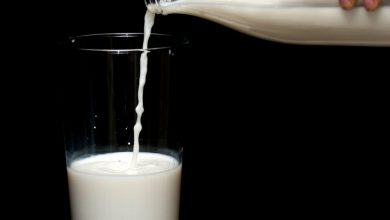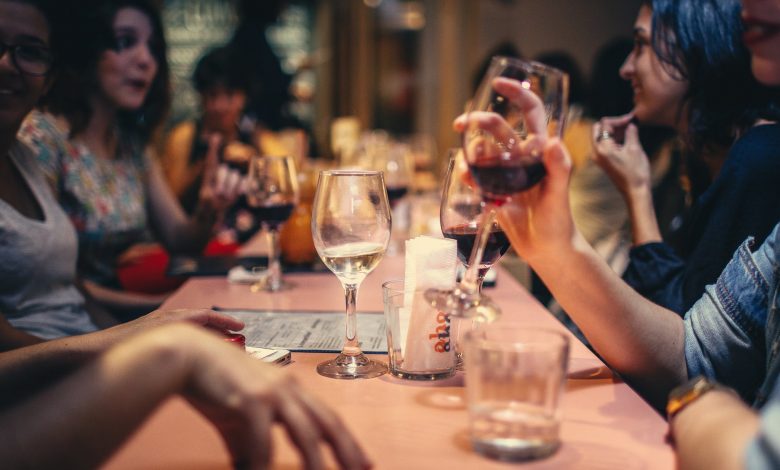
Drinking on Your Diet: How to Lose Weight Without Going Sober
One of the first things you hear when you tell your friends how badly you want to lose weight is, “Cut out the booze!” Talk to people who are on weight-loss diets, and chances are that they are religiously bypassing alcohol to the extent that they are staying away from parties and events just so they can avoid drinking socially. The reverse is also true. Those who are too fond of the drink express that they do not even attempt to lose mass since they can’t give up alcohol.
It is true that alcohol can add pounds to your body and derail your weight loss program rather spectacularly. But if this is the motive behind why you are not attempting to lose weight, you have a silver lining here that you’re missing out on.
Keep in mind that weight loss, or rather maintaining a healthy weight and tackling obesity, is the best gift you can give your own body. If you are overweight, dropping a few crucial pounds should be of utmost importance, and you must start doing something about it now!
Your liking for alcohol shouldn’t be restraining you from doing this. However, if you despair that giving up alcohol is not something that you can do, then the good news is that you needn’t go entirely sober to taste success with your weight loss diet after all.
Before you understand how and why this will still work, you need to know why exactly alcohol is so counterproductive when trying to lose weight.
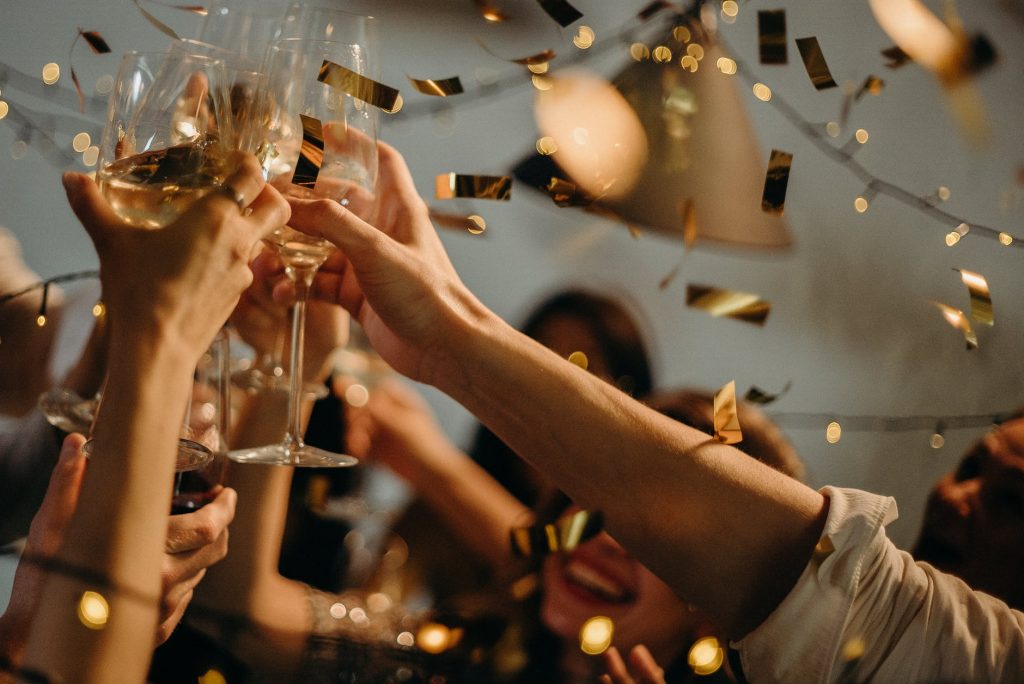
How Alcohol Adds Unwanted Pounds
It is important for you to know how exactly alcohol ends up adding those extra inches to your waist and those extra pounds on the weighing scale. When it comes to your food, you know that extra calories result in weight gain. But with alcohol, most people aren’t even aware of what it contains that contributes to the excess weight you put on.
The fact is that alcohol also results in weight gain for the same reason that fizzy drinks, French fries, or steak burgers do – the typical bottle that you gulp down at your favorite bar is loaded with calories.
Surprisingly, few people realize that when they sip a glass of wine, they are downing a good portion of calories. The terrible news about this is that these are empty calories, the worst kind, because alcohol has no nutrients to offer to compensate for the addition of calories to your body. Pretty much like you do when you consume bottles of carbonated drinks, all you do when you down alcohol is add empty calories to your system, which translates into weight.
Other foods have calories too. For example, a banana has about 105 calories and an apple about 70 calories. But eating these fruits is far healthier than drinking alcohol since the former packs nutrients that your body can use efficiently. Alcohol has no nutrients to offer; all it does is supply calories.
You begin to lose weight when you consume fewer calories than your body burns up and converts into fuel. When you load your physique with empty calories like those associated with alcohol, you possess surplus calories that end up in weight gain.
Take a look at the total calories that a vast range of alcoholic beverages typically contain:
- Beer (12 ounces): 153 calories
- Light beer (12 ounces): 100 calories
- Whiskey/vodka/tequila (1.5 ounces): 97 calories
- Wine (5 ounces): 120 calories
- Sweet wine (5 ounces): 165 calories
- Pina colada (9 ounces): 490 calories
- Manhattan (3.5 ounces): 164 calories
If you add something to the alcoholic beverage, you need to factor in the calorie count of that additive as well. Say you add juice; the calories in juice add on to those from the alcohol. This is the part you often forget to factor in when drinking.
However, despite the fact that alcohol has calories, you need not give it up entirely to achieve your weight loss goals. There is a workaround that lets you drop inches despite your nights out with the gang.
Tips and Tricks to Drinking on Your Weight Loss Diet
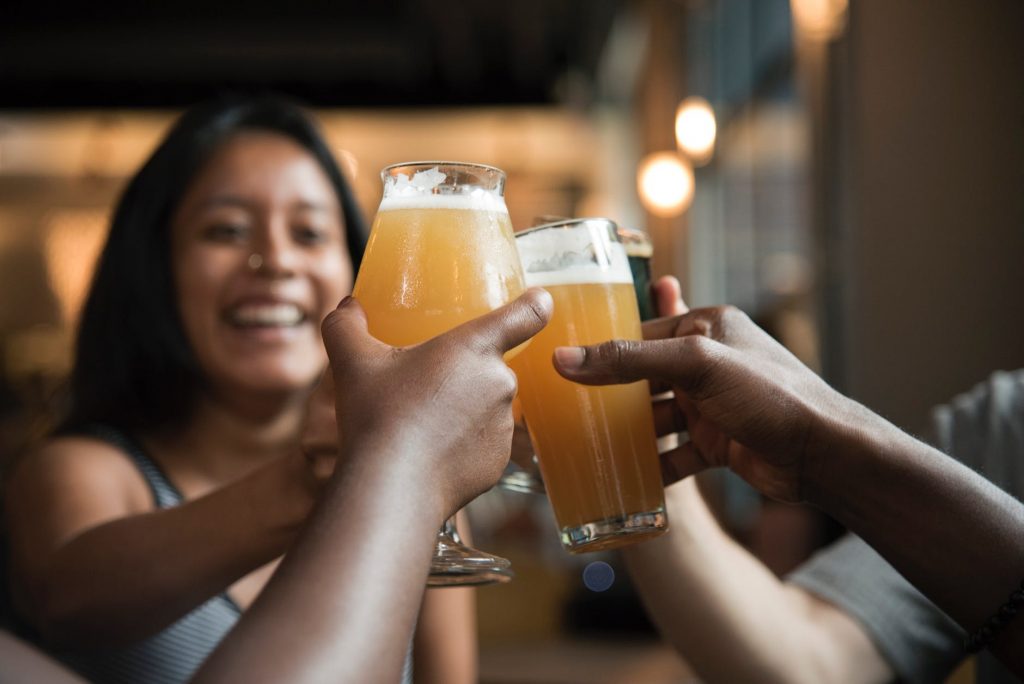
Pay attention to what you are drinking.
The first thing, as we already saw, is to ensure that you are fully aware of the calorie count of whatever in your glass. Educate yourself about the calorie counts of various kinds of alcoholic beverages and figure out which ones you can ingest on the basis of how many calories you tend to take through your food on a daily schedule. Ensure that you do not exceed your overall calorie count for the day when you booze.
A simple way to do this is to acquaint yourself with the lowest calorie drinks and make sure that you only stick to these. This way, you avoid the risk of ingesting extra calories and also cut out the complication of having to perform calculations every time you take the glass to your lips.
Keep in mind that your body needs to be burning more calories than you are taking in. For example, a pina colada is loaded with calories, so avoid this and opt for a lower calorie drink that gives you a similar high.
A simple rule of thumb is that, when your body burns 500 calories more than you ingest over the day, you lose weight at the rate of a pound a week. So lower your alcohol intake and get more active during the day so that you are burning more calories at the same rate as you’re reducing the calorie intake for a double-pronged attack on the flab.
Watch what you are mixing to your drink.
It is not just the alcoholic beverage that you are drinking that adds to the calories but also what you add to it. If you are in the habit of adding juices, then that’s another installment of calories you are gulping down.
A general rule of thumb you can follow is to keep track of how sweet your drink is. The sweeter it is, the more calories you are adding to your system. In mixed drinks, you may be having liqueurs or syrups being added to the mix as well, and these contribute significantly to empty calories.
Instead of adding any of these, go for low calorie or zero-calorie mixers, and you don’t have to worry about the unhealthy composition you’re taking in over and above what your alcoholic beverage already contains. Good choices are seltzer or club soda.
Reduce your alcohol intake.
Studies on alcohol consumption and its impact on body weight have some fascinating results to show. While alcohol intake is a risk factor for obesity in some people, evidence suggests that low key drinking cannot wholly be connected to weight gain. In short, if you are drinking in moderation, then this may not add to your weight or impair your weight loss diet.
But you need to know what exactly moderate drinking entails. Experts say that two drinks make for moderate alcohol consumption in a day for men. For women, this limit drops to one drink per day. Restrict yourself to this limit, and you should see your waistline reducing if you have been a victim of over-indulging in alcohol.
If you have been indulging in binge drinking for an extended period, that is, five drinks or more than that at one go for men (three or more for women) per day, then dropping down to moderate levels may be tough. But you can scale back at a gradual pace if you find it impossible to dial down overnight. Just make sure you are reducing the amounts, though.
Making the change more gradually makes it easier to adapt and also renders the process of dialing down less troublesome. So this way, you are likely to succeed in bringing your alcohol intake down and sustaining it at those levels.
Don’t go out to drink on an empty stomach.
When you have eaten something, you generally are satiated and tend to nurse a glass for longer, thus reducing your alcohol intake without even feeling the pinch. But that’s not all. After you drink, your system typically has an overload of simple carbs that take your blood sugar levels really high before they spiral down suddenly.
When this spiral down happens, your body goes into hyperdrive with hunger pangs, and you tend to binge on food. Food cravings when you are drunk are quite common, and one way to avert these or take the edge off them would be to eat a protein-rich snack before you head out for drinks. Protein breaks down very slowly in your body and keeps you feeling full for longer.
Did you know that some specific food types may be really beneficial for you if you are going out to drink with buddies?? By simply choosing the foods that can help you maintain an electrolyte balance, keep hunger pangs away and hydrate you, you reduce the adverse impact of a night out with friends, alongside ensuring it doesn’t ruin your weight loss strategy entirely.
Eggs, oats, Greek yogurt, salmon, berries, grapefruit, and quinoa are good examples of snacks that will help you restrict the ill-effects of alcohol on your body. Just make sure you munch on a filling meal comprising of any of these before you head out to a night of fun.
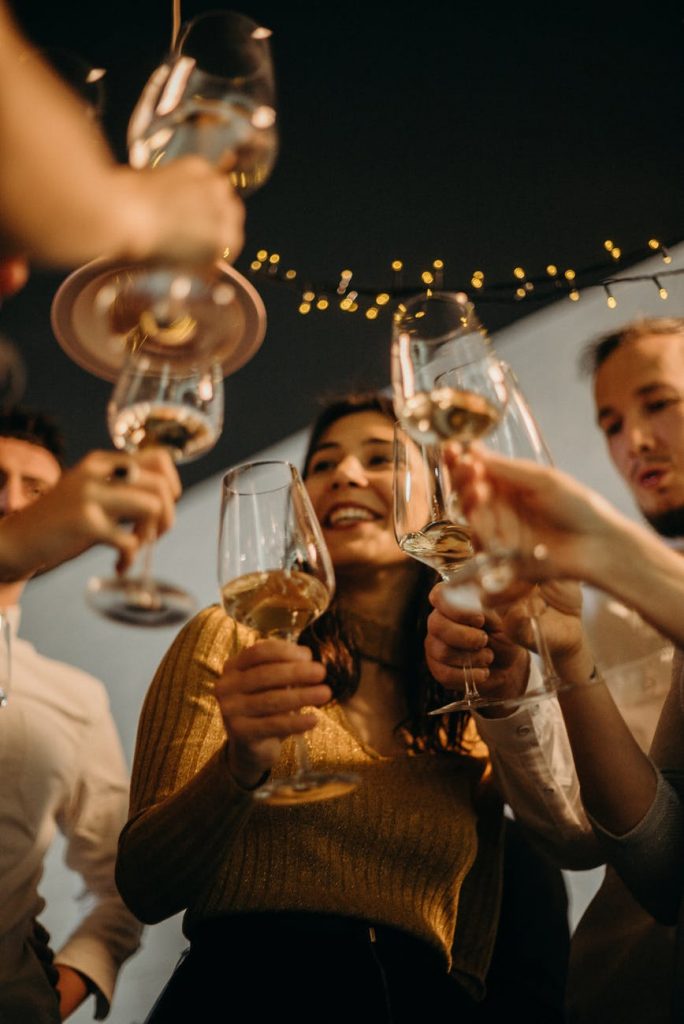
Drink plenty of water.
A very common mistake that most people tend to do when drinking is to forget to drink water. Whenever your throat feels dry, you might just be taking a sip of whatever happens to be in your glass. That might turn out to be the worst thing you can do. In fact, make it a habit to take a sip of water every time you gulp wine so that your body stays hydrated. Also, doing this makes you feel so full that you are less likely to go for more alcohol after your first glass is done.
This has a fantastic side benefit of diluting the effect of the alcohol so that your morning after is a far more pleasant experience. Alongside the less debilitating hangover, you also ensure that you don’t suffer from the dehydration effect that’s quite natural after a wild night with friends when you forget that your body needs adequate water at regular intervals.
Watch what you eat after.
This one will come as a surprise to almost everyone, but it is essential to pay close attention to what you are eating after an evening out with the gang. Alcohol cannot be stored in the body, so when you have a few drinks, your body rushes to metabolize those as a priority item. That means its resources are occupied in breaking down the alcohol and using up the calories to produce fuel.
But once your body has enough fuel for the time being, what you eat next is stored as fat. Now, if you are eating a healthy, nutritious meal next that has minimal low-fat content, this will sail through without trouble.
But what if you go on to eat a high fat snack? The fat from this snack is almost entirely stored away for future use, and over time, you are going to be seeing it all over your hips and your waistline.
If you are trying to cut down weight, make sure you already have a low fat, healthy snack/meal ready to eat when you get back home. Avoid eating out after the drinks and stick to your custom-made diet to keep the adverse impact of drinking down to a minimum.
Alcohol may give you hunger cravings and make it difficult to avoid going for the buffet right then and there. But starting from home with a protein-rich snack to dull the edge of hunger pangs and drinking plenty of water during your drinking session to dilute the alcohol can both help manage this easily.

